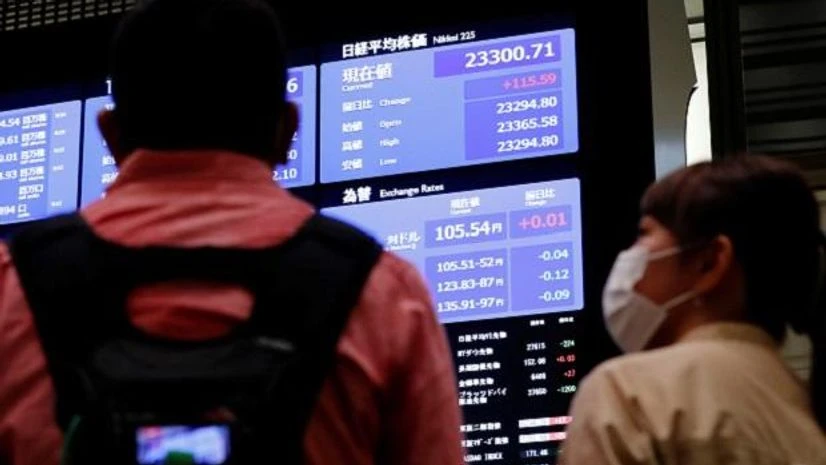By Hideyuki Sano
TOKYO (Reuters) - Asian shares scaled a record high on Friday on the growing prospect of a large U.S. economic package, while hopes that vaccine rollouts will boost the global economy underpinned investor sentiment.
MSCI's broadest index of Asia-Pacific shares outside Japan rose 0.6%, surpassing its Nov. 25 peak, while Japan's Nikkei dipped 0.4% on profit-taking.
In New York, the S&P 500 fell 0.06% on Thursday, erasing earlier gains after the Wall Street Journal reported that Pfizer had slashed the target for the rollout of its COVID-19 vaccine due to supply chain obstacles.
Yet, the damage did not last long, with S&P500 futures gaining 0.3% in early Friday trade.
Also Read
A bipartisan, $908 billion coronavirus aid plan gained momentum in the U.S. Congress on Thursday as conservative lawmakers expressed their support and Senate and House of Representatives leaders huddled.
"A deal before the year-end looked almost impossible a while back but now a package of around $1 trillion seems within reach," said Norihiro Fujito, chief investment strategist at Mitsubishi UFJ Morgan Stanley Securities.
On top of fiscal support, investors expect the U.S. Federal Reserve to tweak its guidance of its asset purchase scheme later this month while the European Central Bank looks certain to increase its bond buying next week.
Progress in developing COVID-19 vaccines also led investors to bet a recovery in corporate earnings will accelerate next year, overriding any concerns about the current dire conditions of the pandemic.
The United States topped 14 million known COVID-19 infections with over 100,000 patients hospitalized for the first time. California imposed stay-at-home orders to take effect when intensive care units approach capacity in the coming days.
"Stock markets are behaving as if the world has already overcome the disease. In reality it will take time before vaccines will reach every corner of the world and infections start to decline," said Mitsubishi UFJ's Fujito.
"Given the rapid pace of gains in stock prices over the past month, there will be some profit-taking. Nevertheless, I don't think the market is peaking just yet."
The upbeat mood saw the U.S. dollar lose ground to other major currencies as well as riskier, less liquid ones.
The euro rose to $1.2142, its highest levels since April 2018 while the yen stood at 103.85 per dollar, holding on to its 0.5% gains made the previous day.
The British pound changed hands at $1.3453, having hit a three-month high on Thursday with traders clinging to hopes of a trade deal between the European Union and Britain.
As talks continued to secure a Brexit deal, an EU official said an agreement was closer than ever but a UK government source warned chances for a breakthrough were receding.
The MSCI's emerging market currency index stood at 2 1/2-year high, having gained more than 10% from its March trough.
In commodities, oil prices got an additional lift after OPEC and Russia agreed to slightly ease their deep oil output cuts from January by 500,000 barrels per day (bpd) even as they failed to find a compromise on a broader and longer term policy.
The increase means the Organization of the Petroleum Exporting Countries and Russia, a group known as OPEC+, would move to cutting production by 7.2 million bpd, or 7% of global demand from January, compared with current cuts of 7.7 million bpd.
Brent crude rose to as high as $49.92 per barrel, its highest price since early March and last stood at $49.59.
(Reporting by Hideyuki Sano in Tokyo, additional reporting by Jessica DiNapoli in New York; Editing by Ana Nicolaci da Costa)
(Only the headline and picture of this report may have been reworked by the Business Standard staff; the rest of the content is auto-generated from a syndicated feed.)

)
